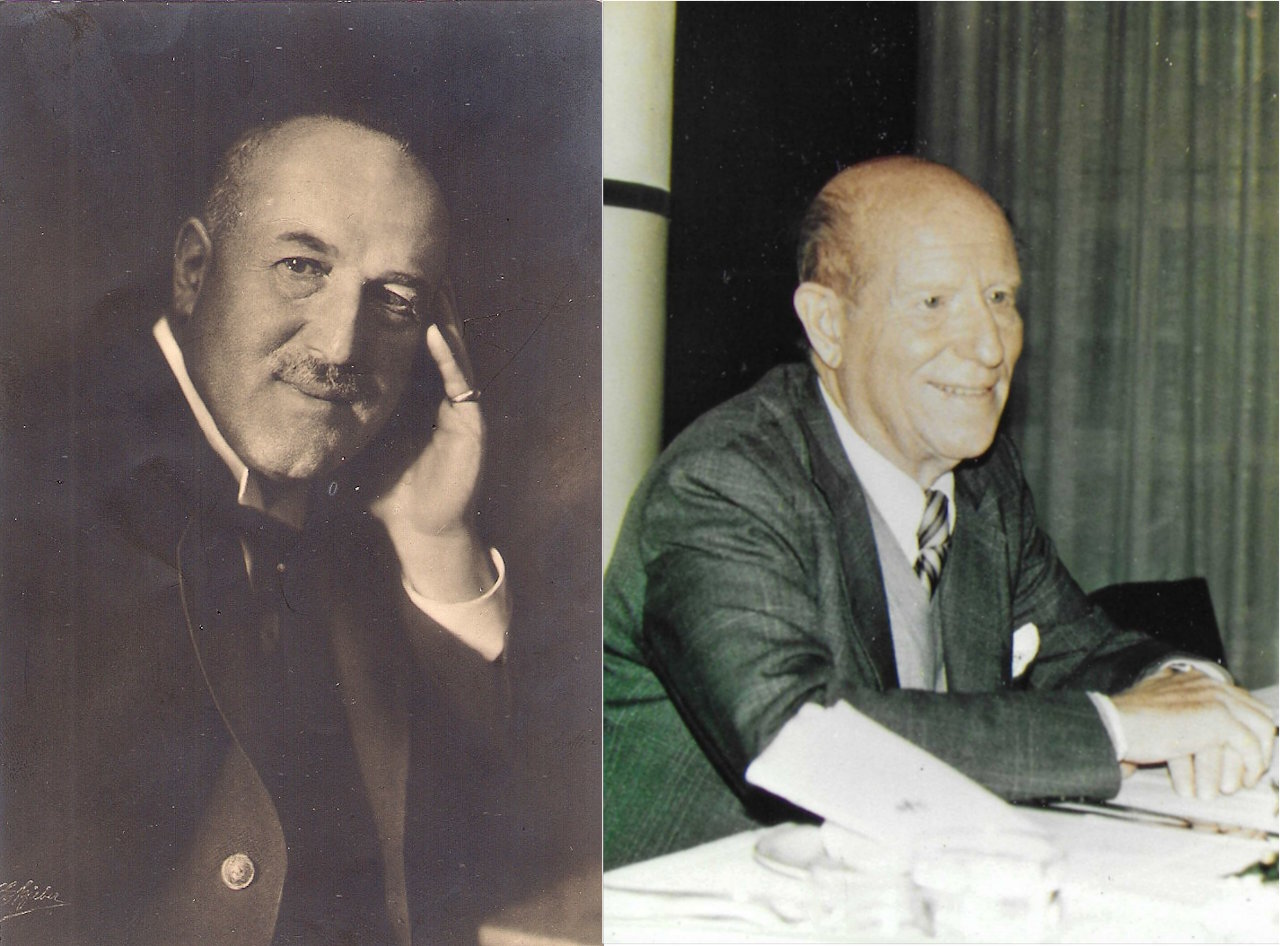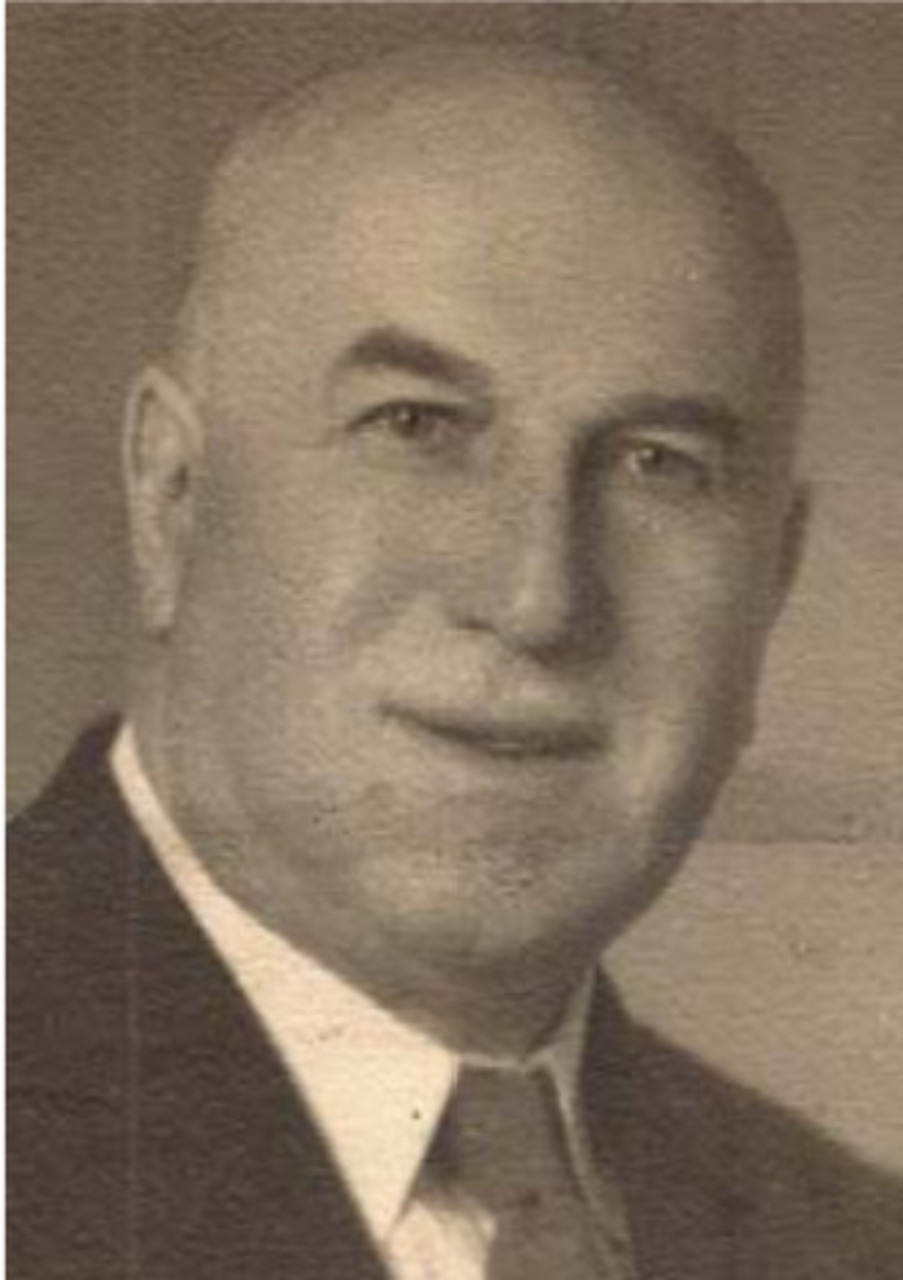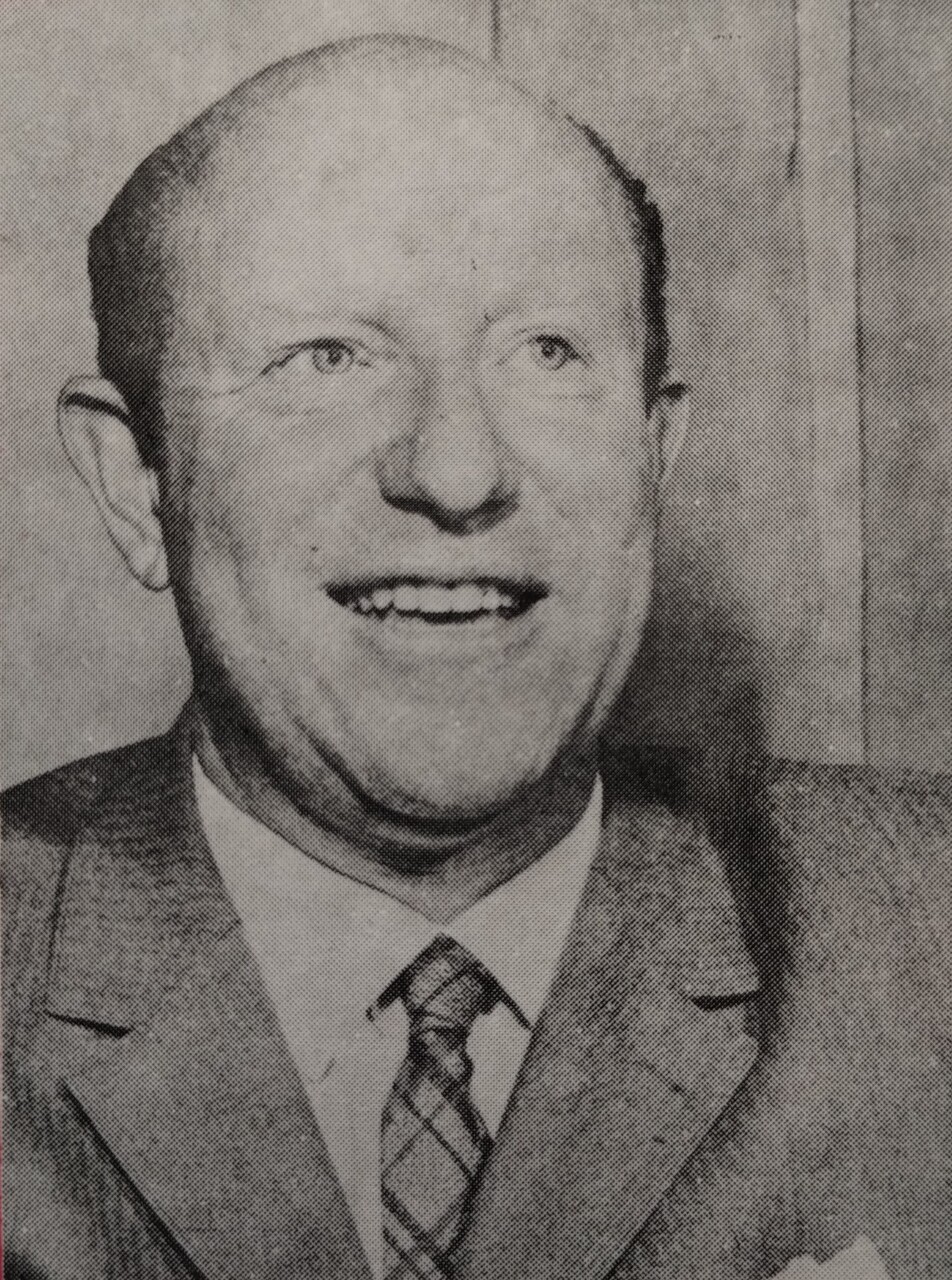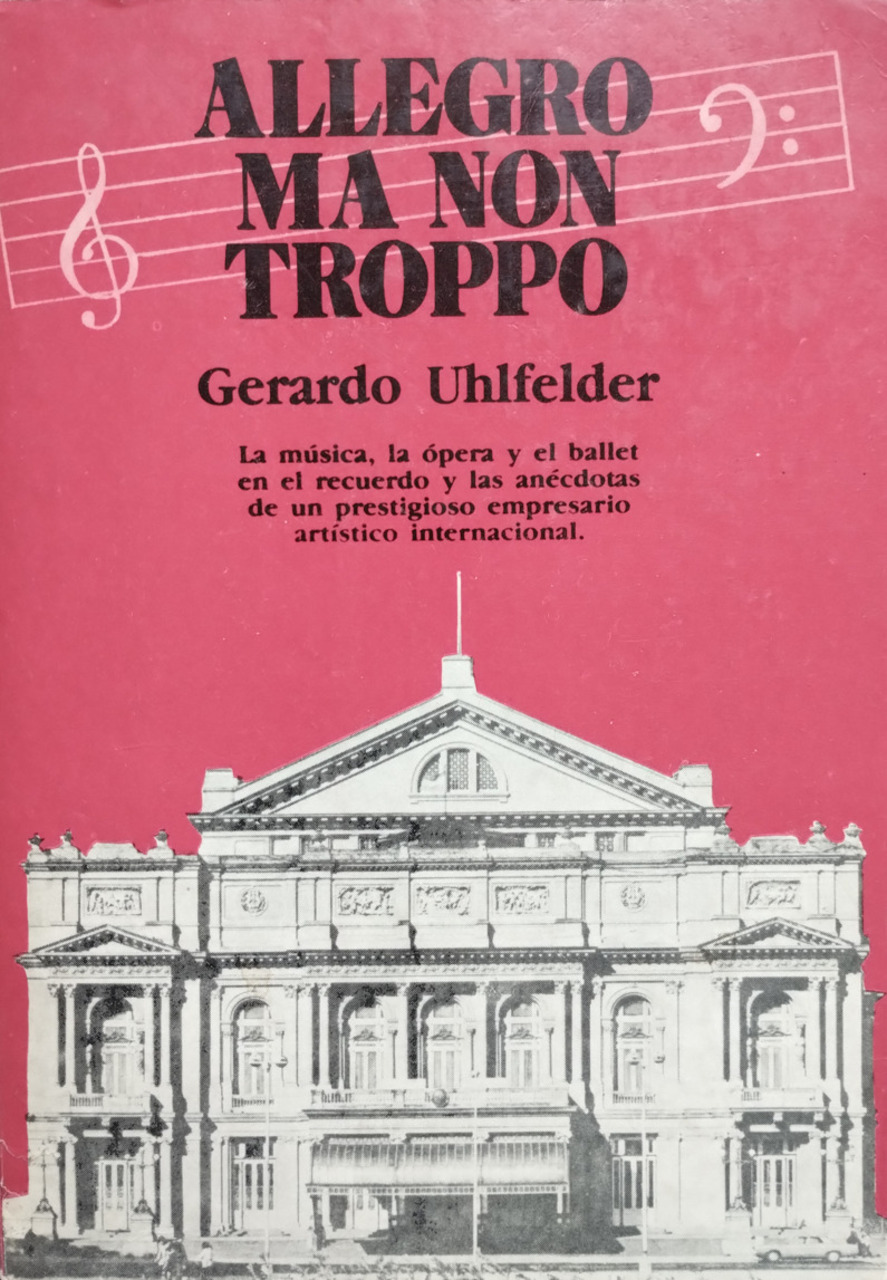Benno (Benito)
Uhlfelder
Born on March 1, 1868 in Bayreuth, Germany
Died on
October 26, 1946 in Buenos Aires,
Argentina
Occupation: Diplomat, writer,
composer, pianist, conductor, music publisher, music critic
Migration: Belgium, 1933 | Argentina, 1938
Gerd (Gerardo)
Uhlfelder
Born on November, 30 1923 in Berlin, Germany
Died on September 26, 1991 in Buenos Aires,
Argentina
Occupation: Music manager, music critic, translator
Migration: Belgium, 1933
| Argentina, 1938
The rise of Nazism in Germany, with Adolf Hitler (1889–1945) at the head of the ‘Third Reich,’ prompted an exodus of thousands of Jews that was unprecedented in European history. Among them were many German- and Austrian-born musicians who went into exile, mainly to Britain, the United States, and Argentina. These countries served initially as transit points, but in most cases became permanent homes.
In all, more than 140 Jewish musicians found refuge in Argentina. Most of these brought along excellent musical backgrounds and training, and had relevant professional experience from Europe. Benno Uhlfelder and his son, Gerd Uhlfelder, were part of this group of exiles, which also included artists such as Roberto Kinsky (1910–1977), Ljerko Spiller (1908–2008), Kurt Pahlen (1907–2003), Guillermo Graetzer (1914–1993), Dajos Béla (1897–1978), Erwin Leuchter (1902–1973), and Viktor Schlichter (1903–1986). Almost all of them were active in or around Buenos Aires, at least in the early years after their arrival. A much smaller number of non-Jewish German and Austrian musicians also immigrated to Argentina due to deep disagreements with the Nazi regime.
It is worth noting that there were exiled Jewish artists in other art forms, some of whom worked in the same places as the exiled musicians and sometimes collaborated and socialized with them. One of these was the Viennese actress and theater director Hedy Crilla (1898–1984). Most of these artists had been expelled from their home countries simply for being Jewish. In Argentina, they searched for ways to continue their careers, not without difficulty. For many of them, arriving in this foreign country meant great expectations and challenges from the perspective of social, political, cultural, and economic prosperity.

Fig. 1 and 2: Portrait of Benno (Benito) Uhlfelder, around 1930; Gerd (Gerardo) Uhlfelder at a dinner in Argentina, around 1990; private archive of Silvio Uhlfelder, Buenos Aires.
With the economic and political crisis of the 1930s, most countries had blocked or limited immigration, and Argentina was no exception. During that decade, a series of measures and decrees restricted the entry of all immigrants, but especially those of Jewish origin. With its politically conservative government and a growing wave of local antisemitism, Argentina drifted closer to the Axis than to the Allies during the war. And yet, this was the Latin American country where most German-speaking Jews ultimately found refuge during the Nazi period.
Why did so many Jewish musicians choose Argentina as a place of refuge? There were two main reasons. Firstly, because Argentina had an important Jewish community, established during previous waves of migration since the late nineteenth century. This marked an advantage, as many of these musicians had relatives who had lived in Argentina before entry restrictions were imposed and could therefore help them with visas and travel permits. The Argentine Jewish community also offered various welfare organizations that assisted immigrants, such as the Aid Society for German-Speaking Jews (Hilfsverein deutschsprechender Juden), which a group of German Jews had founded in 1933 to arrange jobs for newcomers and provide them with loans. Some musicians turned to these organizations, either upon or before their arrival, to help them manage the immigration procedures.
Secondly, Buenos Aires had become a city of culture. Argentine artists and intellectuals had traveled to Europe in the 1920s and 1930s. Meanwhile, Buenos Aires and its vibrant cultural scene attracted people from elsewhere. This exchange placed the multicultural city on the cultural map with strong influences from European culture, including musicians with a German-Jewish background.
Benno Uhlfelder was born in 1868 in the German city of Bayreuth. His father, Leopold Uhlfelder (1840–1921), and his mother, Karolina Goldschmidt (1845–1906), both Jews, had also been born in Germany. Uhlfelder had seven siblings. The family moved to Nuremberg, where he began his music studies, which he would later continue in Leipzig. Uhlfelder’s mother loved the theater and attended performances regularly. He inherited his passion for music from her. At age 16, Uhlfelder graduated from secondary school and visited his hometown, where he attended the Bayreuth Festival. There he was first exposed to the work of the German composer Richard Wagner (1813–1883).

Fig. 3: Portrait of Benno (Benito) Uhlfelder, around 1940; private archive of Silvio Uhlfelder, Buenos Aires.
Uhlfelder had one of his first jobs at a pencil factory before working in his father’s business, which was dedicated to exporting toys and dolls. Leopold Uhlfelder’s business did not prosper, and he considered it important for his children to spend time abroad. In 1891 Uhlfelder left for New York, where he continued his musical studies and found work as an orchestra conductor. It was in a hotel in the town of Patchogue, New York, where he finally got his first job as a pianist. Some time later, his father asked him to return to Germany. Back in his country of birth, Uhlfelder worked at a doll factory in Dresden and as a traveling salesman in Leipzig. The antisemitism of his boss and some of his colleagues prompted him, ultimately, to resign. Throughout the 1880s, antisemitism also increased in Saxony, resulting in the first International Anti-Jewish Congress, which was held in Dresden in 1882.
Uhlfelder decided to move to Berlin, where he worked for a paper factory as a traveling sales representative, taking business trips particularly to Italy and Spain. He spoke Italian and quickly learned Spanish, as he felt a strong affinity for the Spanish people. Thanks to these language skills, he also served as music critic for a Madrid newspaper. In Berlin, Uhlfelder owned a music publishing house called Berolina Verlag, through which he also published some of his compositions.
In 1906, Uhlfelder married Kaethe Sachs (1883–1919) in Berlin, with whom he had two children before her untimely death. He then met Amalie (Mally) Weinberg (1887–1947), who was also Jewish, and married her in 1921. Two years later, their son Gerd was born. In 1923, Uhlfelder was named honorary Vice-Consul of the Republic of Guatemala in Berlin, managing the operations of the Central American country’s embassy to the German government. His knowledge of Spanish would later prove very useful in Argentina.
Upon Hitler’s rise to power, Uhlfelder wasted no time preparing to leave Germany. In August 1933, he and his family left their home for Belgium, where they settled in a suburb of Brussels. Approximately 22,000 German Jews found refuge in Belgium before the outbreak of the Second World War in 1939. Their growing numbers contributed to a rise in local antisemitism, while Uhlfelder’s name was mentioned in several antisemitic publications in Nazi Germany. Around 1938, the 70-year-old Uhlfelder therefore decided to emigrate to Argentina.
Together with his family, he arrived in Buenos Aires in August 1938. Uhlfelder was a prolific composer of operettas, orchestral pieces, and piano music. He also wrote detective stories (in German and Spanish) and some comic books, while resuming his activity as a music critic in the Mundo Musical magazine under the byline ‘Benito Uhlfelder.’ He held an obvious advantage over most German-Jewish refugees, who struggled with Spanish. Their lack of language skills prevented many from working in the jobs for which they had originally trained. And yet, the situation was not always easy for him either. Uhlfelder was a refugee who had been forced to leave his home and start a new life in a foreign country that was undergoing extremely difficult economic and political circumstances during the 1930s.
His son, Gerd Uhlfelder, became an important concert producer in Argentina. His path there was also not easy. As a child, he had to interrupt his primary studies in Berlin when the family fled to Brussels. There, he continued his primary education and started secondary school in 1938. He settled in Buenos Aires with his parents, where Gerd Uhlfelder – now Gerardo – completed his studies at a public night school. His first jobs in Argentina were as an office boy in a pharmacy, a salesclerk at a bookstore, and an administrator at a cement factory. Later, he started a hotel trainee program before becoming the manager of an international journalism and advertising agency and an international food products company.

Fig. 4: Gerd (Gerardo) Uhlfelder, around 1990; private archive of Silvio Uhlfelder, Buenos Aires.
Gerardo Uhlfelder, fluent in both German and Spanish, also found work as a translator. One of his translations included the Köchel Catalogue, a chronological list of the compositions of Wolfgang Amadeus Mozart (1756–1791). In 1945, Uhlfelder organized his first concert. This gave rise to the creation of his company, Organización de Conciertos Gerard, which was established to organize large-scale concerts and attract important musical figures from abroad, who were mostly fellow German-speakers, such as the German composer Paul Hindemith (1895–1963), the German-Swiss violinist Adolf Busch (1891–1952), and the German organist Günther Ramin (1898–1956). In 1948, Uhlfelder teamed up with another exiled musician, the German-Argentine composer Werner Wagner (1927–2002). All these contacts demonstrate Uhlfelder’s role as an important intermediary in Argentina, drawing on his connections across the German-speaking world.
In 1949, he married the German-born Ruth Grünewald (1922–2019), with whom he had two children. Like many Jews from Germany, Uhlfelder married within the German-Jewish community in Argentina. He later founded Juventudes Musicales de la Argentina (Musical Youth of Argentina) to support younger musicians. The government of Jamaica appointed him Honorary Consul to the Argentine Republic in 1971. Like his father, Gerardo Uhlfelder served as a music critic for the magazine El Tamboril. In 1990, he published his book Allegro ma non troppo about his experiences in the music business.

Fig. 5: Gerardo Uhlfelder’s book Allegro ma non troppo, published in Spanish in 1990.
Benno and Gerardo Uhlfelder are only two among many German-speaking Jewish musicians in this group of exiles. Ultimately, each musician’s life has unique and common elements. In all of them, we observe losses and gains as they adjusted to a new environment: for example, learning a new language, changing one’s name, or establishing ties to join the local musical community. Thus, these musicians became part of an “art world,” that is, a network of collaboration, establishing links that would eventually result in joint activities, the establishment of or participation in various musical institutions, chamber ensembles, orchestras, educational institutions, or professional associations.
Gerardo Uhlfelder was 15 years old when he immigrated to Argentina; his father was already 70. Their experiences upon arriving in a foreign country were therefore different. Ultimately, both settled in well in Argentina, which became their home. Benno Uhlfelder already spoke Spanish before arriving in Buenos Aires, while his son learned it quickly, like his other languages, without any noticeable foreign accent.
In 1945, with the end of the Second World War, the Uhlfelders were no longer technically in exile. Nevertheless, they stayed in Argentina for the rest of their lives. While Benno Uhlfelder died the following year, Gerardo Uhlfelder had no reason to leave Argentina. As an adult, he gladly returned to Germany on visits or for work, but never considered returning permanently to the country that had brought him and his family so much pain. And yet, he often quoted a song by the German singer Marlene Dietrich, one of her most famous lines: “Ich hab’ noch einen Koffer in Berlin” (“I still have a suitcase in Berlin”), confirming that – despite everything – his roots had remained there.
Trailer of the documentary El exilio de los musicos (The Exile of the Musicians) produced by Iván Cherjovsky and Silvia Glocer, 2024: https://www.youtube.com/watch?v=DmJUG7IpVho
Silvia Glocer, Diccionario biográfico y bibliográfico de músicos judíos exiliados en la Argentina durante el nazismo (1933 1945) Tomo II (Biographical and Bibliographical Dictionary of Jewish Musicians Exiled in Argentina during the Nazi Period), Buenos Aires: Editorial de la Facultad de Filosofía y Letras Universidad de Buenos Aires, 2021: https://publicaciones.filo.uba.ar/sites/publicaciones.filo.uba.ar/files/Diccionario%20tomo%20II_interactivo.pdf
This work is licensed under a Creative Commons Attribution - Non commercial - No Derivatives 4.0 International License. As long as the material is unedited and you give appropriate credit according to the Recommended Citation, you may reuse and redistribute it in any medium or format for non-commercial purposes.
Dr. Silvia Glocer was born in Argentina in 1965. She is a professor and researcher at the University of Buenos Aires. As a musicologist, her work focuses on Jewish musicians who were exiled or emigrated to Argentina at various times. Books: Melodías del destierro (Ediciones Gourmet Musical, 2016); Música en La Prensa. Partituras de compositores argentinos publicadas en el periódico entre 1937 y 1938 (2017); Diccionario biográfico y bibliográfico de músicos judíos exiliados en la Argentina durante el nazismo (1933–1945), Tomos I y II (2021); Paul Walter Jacob y las músicas prohibidas por el nazismo (in 2015, with Robert Kelz), Cartas de La Brasa. Patrimonio bibliográfico, 1926–1937 (2015, with Héctor Daniel Guzmán); Teatro ídish argentino (1930–1950) (2016, with Susana Skura).
Silvia Glocer, The Uhlfelders: Stories of Exile from Germany to Argentina, in: (Hi)stories of the German-Jewish Diaspora, August 20, 2025. <https://diaspora.jewish-history-online.net/article/gjd:article-35> [March 04, 2026].